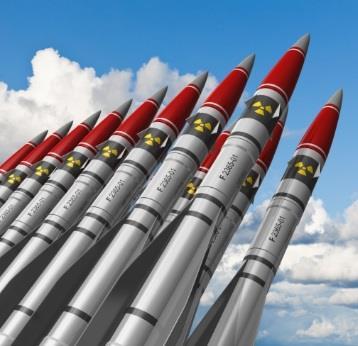
13 minute read
Group 3 Individuals and Societies


IB BUSINESS AND MANAGEMENT
Prerequisites B or 6 in GCSE Maths and English or equivalent is desirable.
Extra-Curricular Opportunities
Possible Career Pathways
Trips and excursions across the UK to visit businesses varying from Jaguar, JCB and Emma Bridgewater, plus notable industry speakers.
Multitude of opportunities across all industries, plus opportunities to develop a career in international business.
ORGANISATION OF WORK: Regular reading about both profit and not-for-profit organisations is essential as the exam expects students to discuss real examples around the themes of Ethics, Innovation, Globalisation, Culture, Change and Strategy. Prep is set weekly using past questions and research tasks. Lessons involve numerate techniques such as accounting and costing; research and presentation tasks; and discursive writing based on case studies. The Internal Assessment is based on investigating a decision made in an organisation of the student’s choice, with support and guidance from teachers. Teaching will be split between two staff to correspond to the differing concepts and themes of work.
Higher Level Topic Covered
Unit 1 Business organisation and management – types of organisation, objectives, stakeholders and the external influences on contemporary businesses.
Unit 2 Human resource management – how we manage people through organisational structure, leadership, motivation and corporate culture.
Unit 3 Finance and accounts – how we manage the finance function, examining budgets, profit and loss accounts, cash flow and decisions on how to invest money.
Unit 4 Marketing – examines how businesses manage the marketing function including research, promotion an e-commerce in both local and global contexts.
Unit 5 Operations management – examining the varying production methods, including research and development and the management of quality.
Internal Assessment (IA)
An individual research project that allows students to demonstrate skills and knowledge and pursue personal interests in a business context, without the constraints associated with written examinations. 2,000 word report 25%
Assessment Method
Paper 1 2 hours 15 mins
Paper 2 2 hours 15 mins
% of grade
35%
40%
IB ECONOMICS
Prerequisites
GCSE Maths Grade B or 6 and GCSE English Language Grade B or 6, or equivalent. An interest in current affairs and the world around you.
Extra-Curricular Opportunities Opportunities to be approved by SLT, but these have included a range of speakers, trips abroad and into London in recent years.
Possible Career Pathways Students will acquire a wide variety of skills, useful in many careers.
DIFFERENCE BETWEEN GCSE and IB LEVEL: The subject is not offered in the Middle School at Oakham. Therefore we assume students have no theoretical knowledge. We move from zero to hero over the course!
ORGANISATION OF WORK: Activities, discussions and presentations will be incorporated into lessons. Students will be expected to do background preparation for lessons, and maintain an orderly folder. Written essays and some calculations will be set. Multiple choice questions and definitions tests will also be used.
Standard Level Key concepts Covered - Scarcity, Choice, Efficiency, Equity, Economic Well-being, Sustainability, Change, Interdependence and Intervention Assessment Method % of grade
Paper 1 Assesses the whole course where students are expected to demonstrate a holistic and critical understanding of how economics helps us to understand real world issues.
Paper 2 Offers students the opportunity to work with qualitative and quantitative data, by applying theories, models, tools and ideas to real world scenarios and case studies.
Commentaries on news articles
Higher Level
Choose 3 topics and three articles in the news to comment upon using economic theories to explain the world around you. IA 30%
Paper 1 Assesses the whole course where students are expected to demonstrate a holistic and critical understanding of how economics helps us to understand real world issues.
Paper 2 Offers students the opportunity to work with qualitative and quantitative data, by applying theories, models, tools and ideas to real world scenarios and case studies.
Paper 3 Uses the skills from papers 1 and 2 to write a discussion paper, culminating in policy advice to decision makers on topical issues.
Commentaries on news articles
Choose 3 topics and three articles in the news to comment upon using economic theories to explain the world around you. IA 20%
Essay 30%
Data response and extended response 40%
Essay 20%
Data response and extended response 30%
Policy paper 30%


IB ENVIRONMENTAL SYSTEMS AND SOCIETIES
Prerequisites Preferably GCSE Biology and Geography but not essential. An interest in global environmental issues would be beneficial.
Extra-Curricular Opportunities
Fieldwork, local sites and residential in Pembrokeshire. Visits to Twycross Zoo, Rutland Water, and the local aquarium. Guest speakers and specialists from the local environment.
Possible Career Pathways
To study at degree level in Environmental Sciences/Management, Biogeography, Development and Cultural Affairs, International Relations, Environmental Law, Environmental Engineering.
DIFFERENCE BETWEEN GCSE and IB DP Higher Level/Standard Level: There is only a Standard Level course offered in this subject. It is a Transdisciplinary subject fulfilling the requirements of both groups 3 and 4 and meets the aims of both groups. This course has a Holistic approach allowing students to make reasoned and balanced judgements using appropriate, economic, historical, cultural, socio-political and scientific sources. Therefore it prepares students for many disciplines.
ORGANISATION OF WORK: Students will be expected to do individual and group background research in preparation for lessons and investigation of case studies.
The aim of this course is to provide students with a coherent perspective of the interrelationships between environmental systems and societies. Topics studied include:
Foundations of Systems and Models Water Systems and Pollution Energy Production and Climate Change Human Systems and Resource Use Ecosystems and Ecology Biodiversity and Conservation Human Population Dynamics Soil Systems and Food Production Atmospheric Systems
Standard Level Topics Covered
Paper 1 Resource paper – case study
Paper 2 Section A: Short answer and data-based questions Section B: Two structured essay questions.
IA
An individual investigation report
Assessment Method % of grade
1 hour exam 25%
2 hour exam 50%
Individual investigation 25%


IB GEOGRAPHY
Prerequisites Ideally GCSE Geography Grade B or 6.
Extra-Curricular Opportunities
Students have the opportunity to go on a variety of field trips. Compulsory trips include visits to Bedford, London and Cambridge. The department also runs a biennial field trip to Italy. Other trips in the past have included Switzerland and the USA.
Possible Career Pathways
Geography is an intellectually challenging subject and at degree level has one of the highest employment rates of any university course. Students studying Geography acquire a wide variety of skills which are useful in a vast array of careers. These include directly and indirectly related careers such as Environmental Consultancy, Urban Planning, Property Development, The Foreign Office, Law, Business and Finance.
DIFFERENCE BETWEEN GCSE and IB DP Higher Level/Standard Level: IB students should be able to build upon the skills developed by GCSE, particularly numerical, literacy and analytical. The main difference between HL and SL is that HL students undertake 3 options rather than 2 and also complete a course on Globalisation and Global Interactions.
ORGANISATION OF WORK: Students will be expected to do background reading in preparation for lessons, and maintain an orderly folder. Both HL and SL students will encounter a range of data analysis, short answer and extended response style questions. Fieldwork is a key part of the IA. Teaching will be split between two teachers to correspond to the differing module content. Many Geography students also complete their EE in Geography.
Higher Level Topic Covered
Core Theme Population, Disparities, Environmental Issues, Resource Consumption and Sustainability. 3 Options Hazards and Disasters, Urban Environments, Leisure, Sport and Tourism.
HL Extension Globalisation and Global Interactions.
Fieldwork 2500 word Fieldwork report.
Standard Level
Core Theme Population, Disparities, Environmental Issues, Resource Consumption and Sustainability. 2 Options Hazards and Disasters, Leisure, Sport and Tourism. Fieldwork 2500 word Fieldwork report.
Assessment Method
% of grade
Paper 1 25%
Paper 2 35%
Paper 3 20% IA 20%
Paper 1 40%
Paper 2 35% IA 25%

IB GLOBAL POLITICS

Prerequisites
GCSE History / English Grade B or 6 are desirable as constructing arguments / evaluating evidence are key skills.
Extra-Curricular Opportunities Highly recommend MUN activity which leads to Dublin, Edinburgh and Amsterdam Conferences. We do visit UK / EU Parliament, Crown /Supreme Court and visit Washington DC every two years. Possible Career Pathways Law, Foreign Office, NGO, Journalism, Banking or Management.
STANDARD AND HIGHER LEVEL STUDENTS: All students complete a common core, entitled ‘People, Power and Politics’. This consists of four core units:
Power, sovereignty and international relations Human rights Development Peace and conflict
ORGANISATION OF WORK: Our teaching will encourage dialogue and debate, nurturing the capacity to interpret competing and contestable claims.
Higher Level Topic Covered
Standard Level
Higher Level students will also examine two current global political challenges, using a case studies approach through oral presentations, chosen from the following: Security Poverty Identity / Borders Environment .
Engagement Activity
Engagement Activity
Assessment Method
IA Paper 1 Paper 2
IA
Paper 1 Paper 2 IA
% of grade
20 20 40
20
30 45
25
IB HISTORY
Prerequisites
GCSE History Grade B or 6 or GCSE English Language and Literature Grade B or 6 if History was not studied.
Extra-Curricular Opportunities Trips include a 5-day visit to Russia and a possible visit to the USA.
Possible Career Pathways Journalism, Law, Business, Civil Service and Banking. Students will acquire a wide variety of skills which are useful in many careers.
DIFFERENCE BETWEEN GCSE and IB DP Higher Level/Standard Level: IB students study an international course that covers longer periods of time than GCSE – up to sixty years on some topics. There are similarities in assessment: one essay paper for Standard Level, two essay papers for Higher Level, and a source paper and a course work investigation for both.
ORGANISATION OF WORK: Students will be expected to do background reading in preparation for lessons. Teaching for Higher Level will be split between two teachers. Pupils will be mentored in their production of the coursework but must be able organise their time effectively and take responsibility for meeting key deadlines.
Higher Level Topic Covered Assessment % of grade
International relations
1918‑36
Causes, practices and effects of wars
The Cold War
Terms and impact of the Paris Peace Treaties 1919‑20 Depression and threats to international peace and collective security: Manchuria (1931-3) and Abyssinia (1935-6). Paper 1 1 hour, 4 source Qs 20
Different types and nature of 20th century warfare civil, guerrilla, limited, revolutionary, total war Origins and causes of war long-term, short-term and immediate causes Nature of 20th century wars
Technological developments, Tactics and strategies
Resistance and revolutionary movements.
Aspects of the history of the Americas
The nature of the Depression The Cold War and the Americas 1945‑1981 A study on the international stand-off between the USSR and
America and how it impacted on the countries involved. Civil rights and social movements in the Americas Paper 3 2½ hours – 3 essays] 35
Historical Investigation
The Investigation enables students to demonstrate the application of their skills and knowledge, and to pursue their personal interest.
Standard Level Studies all of the modules above with the exception of Paper 3 –Aspects of the history of the Americas. Paper 2 1½ hours – 2 essays 25
IA 2000 words 20
IB PHILOSOPHY
Prerequisites
GCSE Grade B or 6 in Religious Studies and/or History, and a GCSE Grade B or 6 in English Language.
Extra-Curricular Opportunities
All IB Philosophy students are members of the Philosophy Society, which organises regular lectures and discussions.
Possible Career Pathways
Law, Finance, Journalism, Marketing, PR, Civil Service. Students will acquire a variety of useful skills much sought after by a wide range of employers.
DIFFERENCE BETWEEN GCSE and IB DP Higher Level/Standard Level: The evaluative skills developed in GCSE Religious Studies are built on in the IB and there is some continuity in content in the form of the ethics module. However, it is possible to study the IB without having studied GCSE RS, and students who do so will not be significantly disadvantaged.
ORGANISATION OF WORK: Students will be expected to complete questions in preparation for class discussion and further note-taking in lessons and to engage fully in class discussions.
Higher Level Topic Covered
Paper 1 Being Human: an exploration of what it is that separates humans from animals; human nature and the nature of existence Ethics: a study of what makes an action right or wrong; reasons for behaving morally; and the meaning of ethical language Political Philosophy: analysing theories of justice, liberty and democracy Written paper 2h30 40%
Paper 2
Plato’s Republic: a study of Plato’s most famous work and its implications and impact on philosophy
Paper 3 Doing Philosophy: an opportunity to reflect on what it means to ‘do’ philosophy, how it should be studied and the history of philosophical method
IA
Standard Level
A philosophical analysis of a non-philosophical stimulus e.g. a study the moral code proposed in The Dark Knight Coursework 20%
Paper 1 Being Human and Political Philosophy as above
Paper 2
IA
Plato’s Republic as above
As above
Assessment Method % of grade
Written paper 1h
Written paper 1hr15 20%
20%
Written paper 1h35 50%
Written paper 1h 25%
Coursework 25%

IB PSYCHOLOGY

Head of Department – to be confirmed lfd@oakham.rutland.sch.uk
Prerequisites Ideally GCSE Grade B or 6 in Maths and Dual Science/Biology
Possible Career Pathways
A psychology degree can lead to careers in many fields, including health and caring professions, psychiatry, management, education, criminology, media studies and advertising.
INTRODUCTION: Psychology is the rigorous and systematic study of mental processes and behaviour. It is a complex subject which draws on concepts, methods and understandings from a number of different disciplines. There is no single approach that would describe or explain mental processes and behaviour on its own as human beings are complex animals, with highly developed frontal lobes, cognitive abilities, involved social structures and cultures. This requires a multidisciplinary approach and the use of a variety of research techniques whilst recognising that behaviour is not a static phenomenon, it is adaptive, and as the world, societies and challenges facing societies change, so does behaviour. The knowledge, concepts, theories and research that have developed the understanding in these fields will be studied and critically evaluated to answer some of the questions being asked by psychologists today.
The options provide an opportunity to take what is learned from the study of the approaches to psychology and put it into the context of specific lines of inquiry, broaden students’ experience of the discipline and develop the students’ critical inquiry skills. The focus is on applied Psychology. Surrounding the approaches and the options are the overarching themes of research and ethics. A consideration of both is paramount to the nature of the subject. As a part of the core syllabus, DP psychology promotes an understanding of the various approaches to research and how they have been used in order to critically reflect on the evidence as well as assist in the design, implementation, analysis and evaluation of the students’ own investigations. ORGANISATION OF WORK: During the course, students will be expected to take part in group work, but also demonstrate the application of their skills and knowledge, and to pursue their personal interests without the time limitations and other constraints that are associated with written examinations within their own experimental investigation.
Higher Level/ Standard Level
Core Topic Covered
Biological, cognitive and sociocultural approaches to understanding behaviour Approaches to research behaviour
Options Abnormal psychology Developmental psychology Health psychology Psychology of human relationships
Internal Assessment
Report on an experimental study
Assessment Method % of grade
Paper 1
Paper 3 (HL only) HL40% SL 50%
HL 20%
Paper 2 HL 20% SL 25%
Internal Assessment HL 20% SL 25%








